A disability-inclusive world during the COVID-19 Outbreak and beyond
03 December 2020
Today, on the International Day for Persons with Disabilities, the United Nations in Iraq renews its commitment to achieving full and equal rights and participation in society for all children, women, and men with disabilities. In doing so, we pledge to continue working collectively towards a disability-inclusive and accessible world for all, during the COVID-19 pandemic and beyond.
To “leave no one behind” is the central, transformative promise of the 2030 Agenda and its Sustainable Development Goals. In Iraq, the UN Disability Inclusion Strategy (UNDIS) aims to lead to full participation of and leadership by persons with disabilities in all areas of life and community, in line with the theme of the International Day of Persons with Disabilities: Building Back Better: toward a disability-inclusive, accessible and sustainable post COVID-19 World.
Globally, more than one billion people experience some form of disability. Iraq is thought to have one of the world’s largest populations of persons with disabilities. In a country of almost 40 million, it is estimated that over four million people live with one or more disabilities, including those resulting from past or recent armed conflict. Among them are the most vulnerable refugees and displaced people.
The socio-economic consequences of the pandemic disproportionately impact upon the rights of persons with disabilities. Measures taken to safeguard families’ health, such as movement restrictions, restricted services and temporary closures of businesses have had side-effects such as disrupting equal access to information, health care, essential support and education. Households and individuals have also changed their behaviours, including persons with disabilities and their carers who may be concerned about the increased risks associated with COVID-19. Persons with disabilities have been placed at even greater risk of isolation, stigmatization, poverty, loss of employment, abuse and mental ill-health.
The pandemic has shown that protection, response and recovery efforts can only be effective when everyone is equally valued and included. Critical and urgent action is required to ensure that persons with disabilities are consulted and included in public emergency planning, health response and recovery efforts.
“The commitment to protecting the dignity and human rights of all persons with disabilities, ensuring their lives and rights are appropriately protected during the COVID-19 pandemic is an investment in a common future and it is part of supporting Iraq’s future success,” said Irena Vojáčková-Sollorano, UN Resident Coordinator and Humanitarian Coordinator for Iraq. “There is still a long way to go and we stand ready to work together to ensure that everyone is included, empowered and contributes to their community, so that every day will be a day for all.”
In support of the organizations of persons with disabilities, civil society and local authorities already doing important work on the ground, the UN in Iraq will work together to build a more inclusive, accessible, equitable, barrier-free and sustainable post COVID-19 society for persons with disabilities, and multiply our efforts in continuing to fully mainstream their rights.
While we appreciate the efforts made across the country for the inclusion of persons with disabilities, Iraqi authorities are encouraged to take all necessary measures to ensure the participation, safety and support of persons with disabilities in situations of risk, especially during the pandemic; and to prioritize addressing how poverty and deprivation disproportionally impact upon them.

This includes strategic development and leadership on the human rights and protection priority areas in Iraq, including: early warning, prevention and protection of human rights in situations of conflict and insecurity; strengthening rule of law and accountability for human rights violations; child protection; conflict related sexual violence; enhancing equality and countering discrimination; enhancing and Protecting Civic Space and People’s Participation. Ms. Bell holds a MSt. in International Human Rights Law from the University of Oxford and MA and BA degrees (distinction) from the University of Victoria.
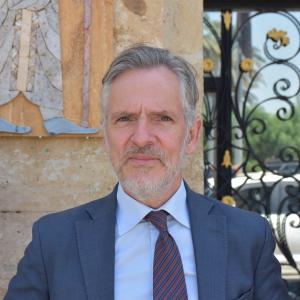
Mr. Waite is originally from the United Kingdom and earned a BA in Linguistics and Anthropology and a MA in Linguistics from the University of Edinburgh. He earned a second MA in Human Rights from the University of London.
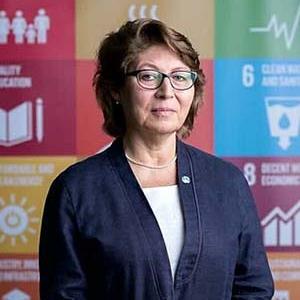
Irena Vojáčková-Sollorano
Ms. Vojáčková-Sollorano holds a Diploma in International Economic Relations from the Diplomatic Academy in Vienna, a Master’s Degree in History, Geography and International Law from the University of Vienna, and a Bachelor’s degree in History, Sociology, Geography and Political Science from the University of Heidelberg in Germany. Ms. Vojáčková-Sollorano is proficient in English, German and Czech.
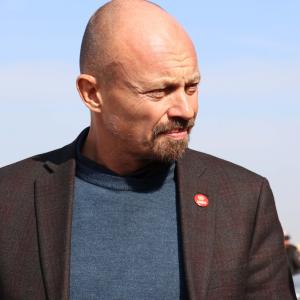
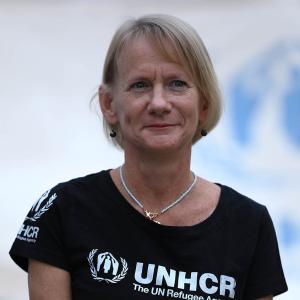
(Deputy Representative, Baghdad, Iraq from October – December 2019)
Ms. Candler joined UNHCR over 25 years ago in Canberra, Australia. She has since worked for UNHCR mainly in field locations such as Mozambique, Indonesia, Eritrea, Kenya, Sudan and Angola but also at UNHCR Headquarters in Geneva and Brussels. Ms. Candler has held a number of different functions most of which were in the area of refugee protection, although she has also worked with UNHCR’s Inspector-General’s Office. Ms. Candler’s function before moving to Iraq was as UNHCR Representative in Angola. Ms. Candler graduated with an LLB from the School of Oriental and African Studies (SOAS), University of London, and subsequently completed an LLM in Law and Development.
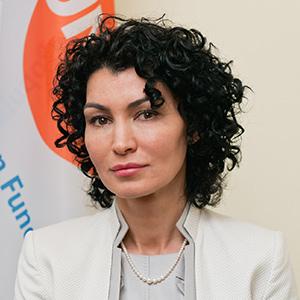
She managed regional and global programmes while working with several governments, development agencies and NGOs.
Prior to joining UNFPA in Iraq, she served as UNFPA Representative to Moldova and Country Director for Albania and was part of UNFPA Regional Office for Eastern Europe and Central Asia’s Senior Management team.
She holds a medical degree a Master’s degree in Public Administration and a Master’s degree in Health Management.




